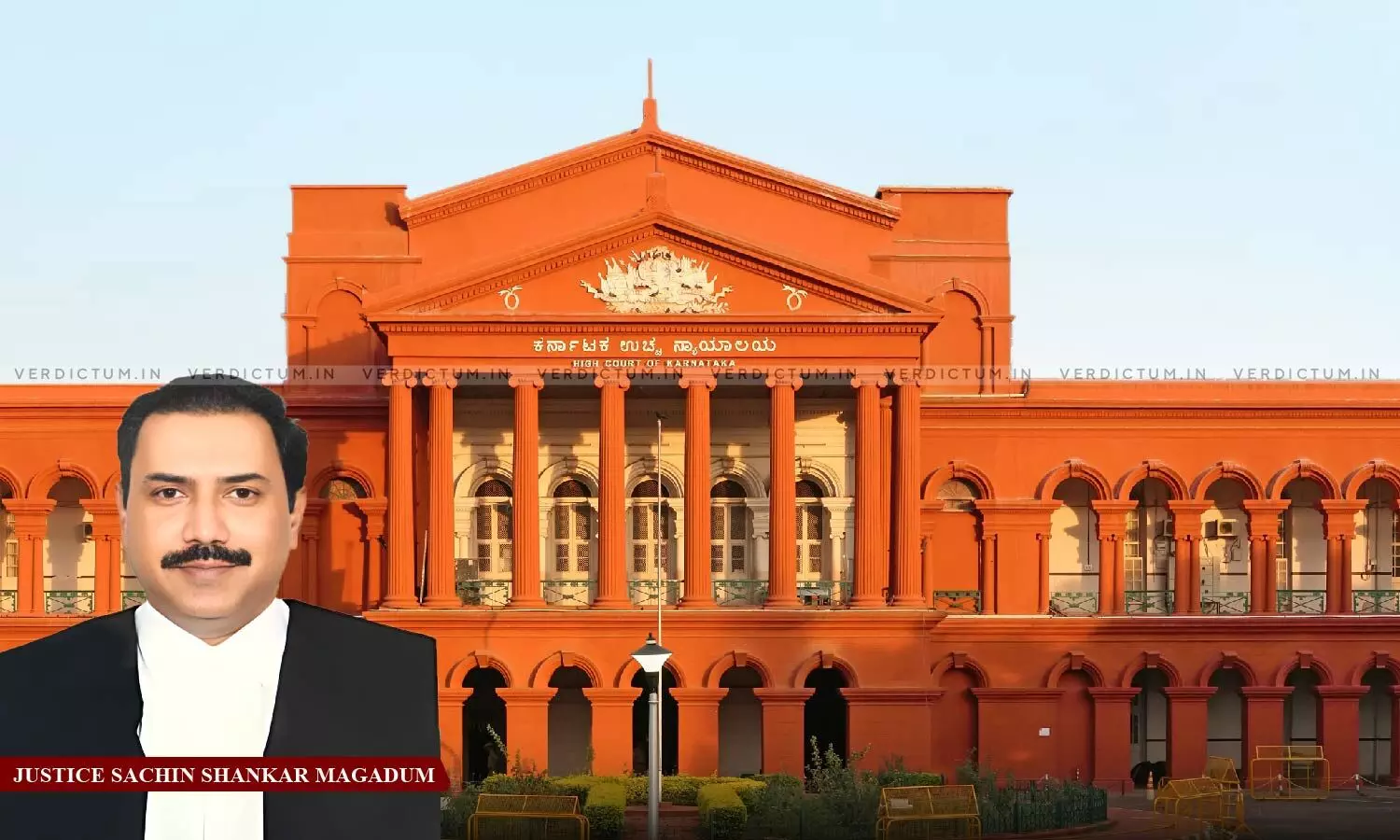
Failed To Establish Grounds Warranting Interference: Karnataka HC Dismisses Plea Challenging Constitutional Validity Of Rule 4(A) Of BBMP Rules, 2018
 |
|The Karnataka High Court dismissed the writ petition assailing the constitutional validity of Rule 4(a) of the Bruhat Bengaluru Mahanagara Palike General Cadre and Recruitment of Officers and Employees Rules, 2018 (BBMP Rules).
The Court was deciding a petition preferred by the officer and employees of BBMP i.e., BBMP Officer and Employees Welfare Association.
A Single Bench of Justice Sachin Shankar Magadum observed, “… this Court is of the considered opinion that the petitioner has failed to establish any grounds warranting interference with the constitutional validity of Rule 4(a) of the Cadre and Recruitment Rules, 2018. The Rule, being a part of subordinate legislation, enjoys a presumption of constitutionality, which the petitioner has not successfully rebutted. Furthermore, the petitioner has not placed any material evidence to demonstrate that the State has exceeded its authority or acted in contravention of the Karnataka Municipal Corporations Act, 1976, or the BBMP Act, 2020, in framing Rule 4(a).”
The Bench added that the State’s retention of power to appoint Group A officers is in line with its statutory powers and administrative control over local bodies like the BBMP, which is financially and functionally dependent on the State.
Senior Advocate D.R. Ravishankar represented the petitioner while Additional Advocate General (AAG) Vikram Huilgol represented the respondents.
Factual Background -
The State published a draft of the BBMP Rules, 2018. The petitioner/Association filed its objections to the said draft that led to the constitution of committee by the State to examine the objections tendered. The petitioner Association was aggrieved by the approval of the draft by the State. The petitioner contended that Rule 4(a) of Cadre and Recruitment of Officers and Employees is not in conformity with the provisions of the Karnataka Municipal Corporations Act, 1976 (KMC Act) and is ultra vires to the provisions of Sections 82, 84, 89 and 69 of the KMC Act. The petitioner was aggrieved on the ground that its objections were not properly examined by the committee before approving the draft of the BBMP Rules, 2018.
The High Court in the above regard, said, “The State Government's reserved power to appoint Group A officers under Rule 4(a) of the BBMP (General Cadre and Recruitment of Officers and Employees) Rules, 2018 reflects a legal and constitutional framework designed to ensure efficiency, accountability, and proper governance. This power aligns with India's federal structure, which seeks to balance local autonomy with state oversight. The power to control senior appointments has been shaped by judicial precedents, reinforcing the authority of State governments in matters of public administration.”
The Court further noted that the State’s involvement in appointing senior officers like Group A employees guarantees that standards of competence, experience, and skill are maintained and that the BBMP, being a critical urban authority, requires officers who can handle complex administrative and policy-related matters that align with both state and national interests.
“The State government’s direct involvement ensures that appointments are based on objective criteria rather than local political dynamics, which may skew recruitment for short-term political gains”, it enunciated.
The Court emphasised that the State’s reserved power to appoint Group A officers ensures uniformity and cohesion across various public services and without the State’s involvement, there could be significant variances in governance quality, which could disrupt overall State administration.
“The State’s reserved power to appoint Group A officers under Rule 4(a) of the BBMP Recruitment Rules is a constitutional safeguard that ensures efficiency, competency, and alignment with broader state policies. Judicial precedents have reinforced the State’s supervisory role over local bodies, ensuring that strategic, merit-based, and non-partisan appointments are made to these senior positions. This power preserves the delicate balance between local governance autonomy and State control necessary for effective and uniform public administration”, it also remarked.
Accordingly, the High Court dismissed the writ petition.
Cause Title- Bruhath Bangalore Mahanagara Palike Officer and Employees Welfare Association v. State of Karnataka & Ors.
Appearance:
Petitioner: Senior Advocate D.R. Ravishankar and Advocate V. Srinivas.
Respondents: AAG Vikram Huilgol, AGA V. Shiva Reddy, and Advocate M.A. Subramani.